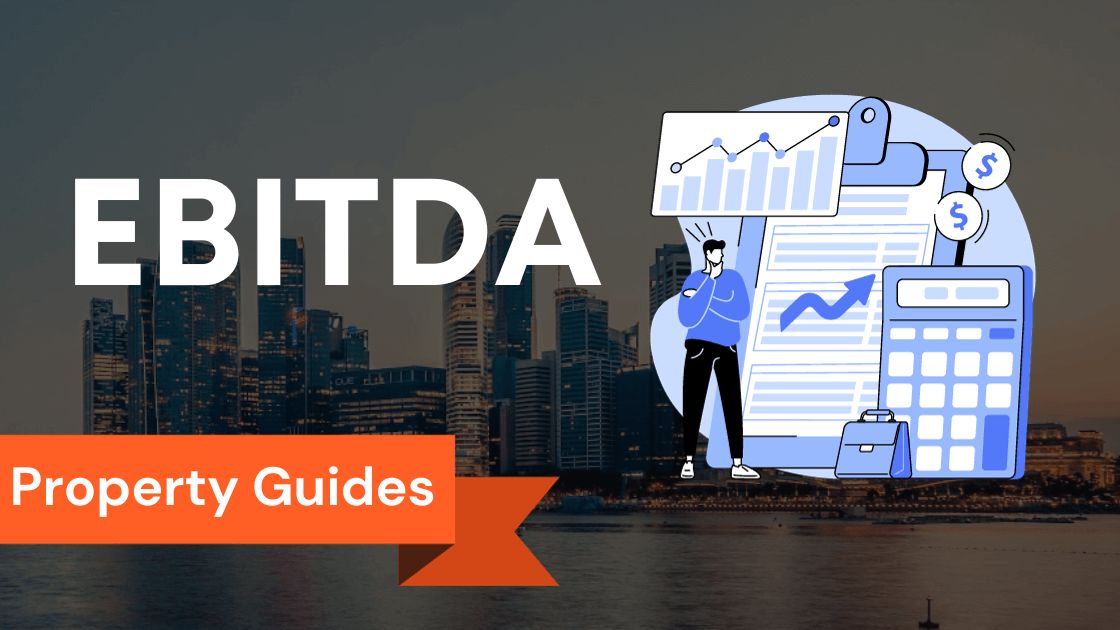
What is a Doing Business As (DBA) mean?
Definition of a DBA
In the world of business, a DBA, which stands for Doing Business As, refers to a trading name or sole proprietorship that operates under a name different from the legal name of its owner.
For example, if John Smith wants to open a bakery called “Delicious Treats,” he would need to register a DBA name separate from his legal name.
By doing so, he can conduct business using the DBA name while maintaining legal protections and liabilities as a sole proprietor.
When is a DBA required in Singapore?
In Singapore, businesses are required to register a DBA name if they operate under a name other than their legal entity name.
Whether it’s a sole proprietorship, partnership, or limited liability company, if the business wants to operate under a name that is not its legal name, it must register a DBA name.
The registration process can vary depending on the jurisdiction, but generally, it involves filing a DBA application with the appropriate county or city office.
More information about the specific requirements and procedures can be found on the respective county and city websites.
Benefits of using a DBA
Using a DBA offers several benefits for businesses.
Firstly, it allows companies to operate under a name that is more memorable, marketable, or aligned with their branding strategy.
A DBA name can be a powerful tool for marketing and creating a solid brand image in the minds of customers.
Furthermore, using a DBA provides flexibility as businesses can choose different DBA names for other business purposes or ventures while keeping their legal entity intact.
For example, a food company may use a different DBA name for its restaurant division and its catering division, allowing it to target different customer segments and utilize different branding strategies.
From a legal standpoint, a DBA name helps keep personal and business matters separate, as all legal liabilities connected to the business operations are associated with the DBA and not the owner’s unique name.
This separation offers added protection to the owner’s assets.
https://www.youtube.com/watch?v=u6us_JPSw0c
Overall, registering a DBA name in Singapore is a straightforward process that can offer businesses flexibility, DBA allows, branding opportunities, and legal protections.
By operating under a distinct DBA name, businesses can better position themselves in the market and attract customers while maintaining legal compliance and liability protection.
Key Takeaways
- Definition of DBA: A DBA, or Doing Business As, is a trade name or sole proprietorship that operates under a name different from the legal name of its owner. It allows businesses to conduct operations using a separate name while maintaining legal protections.
- When is a DBA Required: In Singapore, businesses must register a DBA name if they operate under a name other than their legal entity name. This applies to sole proprietorships, partnerships, or limited liability companies.
- Benefits of Using a DBA: Registering a DBA name offers benefits such as branding opportunities, flexibility for different business ventures, and legal separation between personal and business matters, providing added protection to personal assets.
- Requirements for Registering a DBA: To register a DBA in Singapore, choose a unique name, file the necessary paperwork with the Accounting and Corporate Regulatory Authority (ACRA), have a registered legal entity, determine the business structure, and adhere to business name standards.
- Steps to Register a DBA: File a DBA application through the ACRA BizFile+ portal, pay the filing fee, and receive confirmation from ACRA. While not mandatory, renewing the DBA registration annually is recommended.
- Costs Associated with Registering a DBA: Costs include fees for registering a legal business entity, filing a DBA name, and annual renewal fees.
- Factors for Choosing a DBA Name: Consider legal protections, branding alignment, uniqueness, and availability when choosing a DBA name.
- Legal and Tax Implications: Using a DBA does not provide liability protection, and tax obligations remain the same. Compliance with licenses, permits, and legal matters is crucial.
- Managing Your DBA: Keep your DBA registration up to date, address infringements promptly, and consider consulting legal professionals for compliance.
- Alternatives to Using a DBA: Alternatives include using the LLC name, a business trademark, or a personal name, depending on the business structure and branding strategy.
How to Register a DBA in Singapore: DBA Filing, Set Up a DBA

Requirements for registering a DBA
If you are looking to operate your business under a different name in Singapore, you will need to register a DBA, which stands for “Doing Business As.
” Here are the requirements for registering a DBA in Singapore:
- Register a DBA name: Choose a unique name that is distinguishable from existing businesses in Singapore.
- File a DBA: Complete the necessary paperwork to register your DBA with the Accounting and Corporate Regulatory Authority (ACRA). This can be done online through the ACRA BizFile+ portal.
- Legal entity: Your business must be registered as a legal entity in Singapore before you can register a DBA. This can be in the form of a sole proprietorship, partnership, or company.
- Business structure: Determine the business structure under which you want to operate your DBA. This will depend on your specific business needs and goals.
- Incorporation documents: Prepare the necessary incorporation documents, such as the Memorandum and Articles of Association, for your business entity.
- Business formation process: If you still need to register your business entity, you will need to go through the business formation process before registering a DBA.
- Business name standards: Ensure that your chosen DBA name adheres to the naming conventions set by ACRA. Words that are offensive, misleading, or identical to existing businesses will not be approved.
Steps to register a DBA
Once you have met the requirements mentioned above, you can proceed with the following steps to register your DBA in Singapore:
- File for a DBA: Submit the necessary application form through the ACRA BizFile+ portal. Provide information about your business entity, proposed DBA name, and other required details.
- Set up a DBA: Pay the filing fee for registering your DBA. The cost varies depending on the type of business entity and the processing time you choose.
- Register your DBA: Upon successful payment, your DBA will be registered, and you will receive a confirmation from ACRA.
- DBA filing or assumed name: Once your DBA is registered, you can start doing business under your chosen word. You may use the DBA name on your business cards, signage, and other marketing materials.
- Option to file a DBA: It is not mandatory to register a DBA in Singapore, but it is recommended if you want to operate under a name other than your legal business entity name.
- Annual renewal: Remember to renew your DBA registration annually to keep it active. Applicable renewal fees will apply.
- Client contract: Update your client contracts and agreements to reflect your DBA name if you will be using it in your business dealings.
Costs associated with registering a DBA
Here are some costs you can expect when registering a DBA in Singapore:
- Register a DBA without first incorporating: You must register a legal business entity to avoid incurring additional costs associated with the business formation process.
- Required to register a DBA: ACRA does not charge a separate fee for registering a DBA, but you will need to pay the filing fee for your chosen business entity.
- Option to register a DBA: While registering a DBA is not mandatory, it is advisable to do so for branding and marketing purposes.
- File for a DBA name: The filing fee for registering a DBA varies depending on the type of business entity and the processing time you choose.
- Additional steps: If you need to make changes to your DBA registration, such as updating the DBA name or adding new business activities, there may be additional fees involved.
- Annual renewal: You will need to pay applicable renewal fees when renewing your DBA registration annually.
- Records and current tax status: Keep in mind that maintaining accurate records and ensuring your tax status is up to date may also entail costs.
https://www.youtube.com/watch?v=4GzbY5FukUY
By following these steps and meeting the requirements, you can successfully register a DBA in Singapore and operate your business under a different name.
Choosing a DBA Name: Legal Name, Fictitious Name Certificate

Factors to consider when choosing a DBA name
When starting a business in Singapore, one of the first things you need to do is choose a “Doing Business As” (DBA) name.
This is the name under which your business will operate and be known to the public.
Here are some factors to consider when choosing a DBA name:
- Legal Protections: Ensure that the DBA name you select does not infringe on any existing trademarks or intellectual property rights. Conduct a thorough search to avoid potential legal issues down the line.
- Branding Options: Your DBA name plays a crucial role in your branding strategy. It should accurately reflect your business and resonate with your target audience. Consider how it aligns with your brand values, messaging, and overall marketing strategy.
- Uniqueness: Aim for a DBA name that stands out and sets your business apart from competitors. Avoid generic or overly familiar names that may confuse potential customers or dilute your brand identity.
How to check if a DBA name is available
Before finalizing your DBA name, it’s essential to check if it is available for use.
Here are some methods you can use to determine the availability of a DBA name:
- Legal Name Search: Conduct a search of the official databases, such as the Accounting and Corporate Regulatory Authority (ACRA) in Singapore, to see if another business entity has already registered the name.
- Business Name Generator: Utilize online business name generators to explore unique and available options for your DBA name. These tools can provide inspiration and suggestions based on your industry and preferences.
- Trade Name Records: Check trade name records and directories to see if any similar names are being used in the same industry. Avoid words that may cause confusion or misrepresentation.
Tips for choosing a firm DBA name
To ensure you choose a firm DBA name for your business, consider the following tips:
- Be Clear and Concise: Opt for a DBA name that is easy to understand, pronounce, and remember. Clarity and simplicity help potential customers quickly identify and recall your business.
- Align with Your Legal Name: While a DBA name allows you to operate under a different name, it’s essential to maintain a connection with your legal representation. This provides transparency and avoids confusion when dealing with legal matters.
- Consider Branding: Choose a DBA name that aligns with your branding strategy and overall business goals. It should reflect your brand identity and attract your target audience.
- Think Long-Term: Your DBA name should have longevity and adaptability. Consider the future growth plans and potential expansion of your business to ensure the name remains relevant.
In conclusion, choosing a DBA name is an important decision when starting a business in Singapore.
It involves considering legal protections, branding options, uniqueness, and checking for availability.
By following these tips, you can select a firm DBA name that represents your business accurately and helps you stand out in the market.
Using a DBA in Your Business: Small Business Need A DBA

How to use your DBA name in your business operations
If you want to give your business a different name for branding or marketing purposes, you can use a DBA (Doing Business As) name.
Operating under another name can create a unique identity for your business.
It allows you to present your brand to the world in a way that stands out from your competitors.
By choosing a catchy and memorable DBA name, you can better target your desired audience and attract more customers.
When using a DBA, it’s essential to follow specific branding strategies.
Firstly, ensure that your DBA name aligns with your overall business goals, values, and target market.
Use this opportunity to clearly communicate what makes your business unique and why customers should choose you over your competitors.
Incorporate your DBA name into your marketing materials, including your website, social media profiles, business cards, and advertisements.
Consistently use your DBA name across all platforms to build brand recognition and create a cohesive brand identity.
Legal and tax implications of using a DBA
Using a DBA is a common practice for businesses operating as sole proprietorships.
It is a simple and cost-effective way to run your business under a different name without creating a separate legal entity.
However, it’s essential to understand the legal and tax implications of using a DBA.
From a legal perspective, using a DBA does not provide you with any liability protection.
Your legal liabilities as a sole proprietorship are not separate from your weaknesses.
However, using a DBA can help maintain a level of professionalism and credibility when dealing with clients and suppliers.
When it comes to taxes, operating under a DBA does not change your tax obligations.
As a sole proprietorship, you are still required to report your business income and expenses on your tax return.
You may also need to obtain the necessary licenses and permits associated with your DBA name, depending on your location and industry.
Tips for managing your DBA
To effectively manage your DBA, it is essential to stay organized and keep up with the necessary administrative tasks.
Renew your DBA registration periodically, according to the regulations of your state or jurisdiction.
Treating your DBA as a vital part of your overall business strategy will help you maintain consistency and credibility among customers and partners.
Filing for a DBA requires completing a business name statement or similar legal documents.
Make sure to understand the specific requirements set by your state or jurisdiction.
It would help if you also consider consulting with a lawyer or a business professional to ensure compliance with all legal matters associated with using a DBA.
By managing your DBA properly, you can continue to use it as a valuable branding tool and maintain a strong presence in the market.
Be proactive in protecting your brand and business reputation by monitoring your DBA name usage and addressing any infringements promptly.
In conclusion, using a DBA can be a strategic move for your business if done correctly.
It allows you to operate under a different name for branding and marketing purposes without creating a separate legal entity.
However, it’s essential to understand the legal and tax implications and effectively manage your DBA to maximize its benefits for your business.
Alternatives to Using a DBA Name in Singapore
Using a limited liability company (LLC) name
If you are doing business in Singapore as a limited liability company (LLC), you have the option to use your business entity name as your operating name.
This means that the name registered with the Accounting and Corporate Regulatory Authority (ACRA) will be used for all business transactions and activities.
The advantage of using your LLC name is that it provides a clear and professional image to your clients.
It also helps in building trust and credibility in the market.
Using a business trademark
Another option is to use a business trademark.
This allows you to create a brand identity for your business and differentiate yourself from your competitors.
By registering a trademark with the Intellectual Property Office of Singapore (IPOS), you can protect your brand name, logo, and other distinctive elements.
Using a trademark can also help in creating brand recognition and customer loyalty.
Using a personal name
If you are a sole proprietor or a partnership, you have the option to use your name as your business name.
This is a simple option that does not require any additional registration.
Using your name can help in building a personal connection with your customers and clients.
It also provides flexibility, as you can easily change your business name if needed.
When choosing an alternative to using a DBA name in Singapore, it is essential to consider the legal and branding aspects.
Make sure that the selected name aligns with your business structure and legal requirements.
It should also reflect your branding strategy and goals.
By selecting a suitable alternative, you can ensure that your business operates legally and effectively in Singapore.
Building a solid brand identity and reputation is crucial for long-term success in the competitive market.
Conclusion
Doing Business as Singapore Conclusion
Doing business as a sole proprietorship or registering a DBA ( stands for “Doing Business As” ) in Singapore can provide several advantages and opportunities for business owners.
By filing DBA forms and registering a fictitious business name, entrepreneurs can conduct business under a name different from their legal name, allowing them to create a distinct brand identity and expand into new lines of business. Registering for a DBA Allows portion of your business to be part of your business strategy
When a person or business entity chooses to register a DBA, it signifies to the public that a business entity is transacting business under a name other than its legal name.
This is particularly useful for sole proprietors and partnerships who want to operate their business under a name that is more memorable, descriptive, or aligned with their target market.
Registering for a DBA also allows business owners to segment a portion of their business and create separate identities for different product lines or services.
Choosing a business name and registering for a DBA is an easy process in Singapore.
Business owners can submit the necessary DBA forms along with the required fees to the relevant government authorities.
Once approved, they can begin using their DBA name in their business transactions and marketing efforts.
However, it is essential to note that registering a DBA does not create a separate legal entity. Consider registering a DBA entity name with the state business as a Legal name of your business.
The DBA name is simply a trade name used for branding purposes, while the legal name of the business remains the same.
Business owners will still be personally liable for any debts or legal obligations incurred by the company.
If a business owner wants to register a DBA name in another state or country, they will need to file a DBA in order to comply with local regulations.
It is also essential to ensure that the chosen DBA name is not already in use by another business to avoid potential legal issues.
In conclusion, registering a DBA can be a practical part of a business strategy for entrepreneurs in Singapore.
It allows them to conduct business under a name different from their legal entity name, create a distinct brand identity, and expand into new lines of business.
By filing the necessary DBA forms and choosing a unique and memorable name, business owners can enhance their visibility and attract more customers.
Frequently Asked Questions
What is a DBA?
DBA stands for “Doing Business As”.
It is a legal term used to refer to a business that is operating under a name different from its legal name or the name of its owners.
Why would I need a DBA?
You would need a DBA if you want to do business under a different name than your legal name or the name of your business.
It is essential for sole proprietors who wish to operate their business under a name other than their own.
How do I file a DBA?
To file a DBA, you need to complete and submit the necessary forms to the appropriate government agency, usually the county clerk’s office or the Secretary of State’s office.
The documents typically require you to provide information about your business and the name you want to use.
Do I need to register a DBA name?
Yes, in most cases, you need to register your DBA name with the appropriate government agency.
This is to ensure that another business is still using the name you are using and to provide legal protection for your business.
Can I use a name for my business without filing a DBA?
No, if you want to use a name for your business that is different from your legal name, you generally need to file a DBA.
Operating under a fictitious name without registering it can lead to legal complications and may prevent you from opening a business bank account.
What is a fictitious business name?
A fictitious business name is another term for a DBA.
It is a name that a business uses in addition to its legal name to conduct its operations.
Can a sole proprietorship have a DBA?
Yes, a sole proprietorship can have a DBA.
In fact, it is common for sole proprietors to use a DBA to operate their business under a name that is different from their own.
Do I need a DBA to start a business?
It depends on the type of business you are starting and the legal requirements in your jurisdiction.
In many cases, if you want to operate your business under a different name than your own, you will need to file a DBA.
What other licenses or permits do I need besides a DBA?
The licenses and permits you need will depend on the nature of your business and where you are located.
In addition to a DBA, you may need to obtain business licenses, permits, or certifications specific to your industry or profession.
Can I get a DBA without first forming a business entity?
Yes, you can get a DBA without first forming a business entity.
Sole proprietors, freelancers, and independent contractors often start doing business under a DBA before formalizing their business structure.












